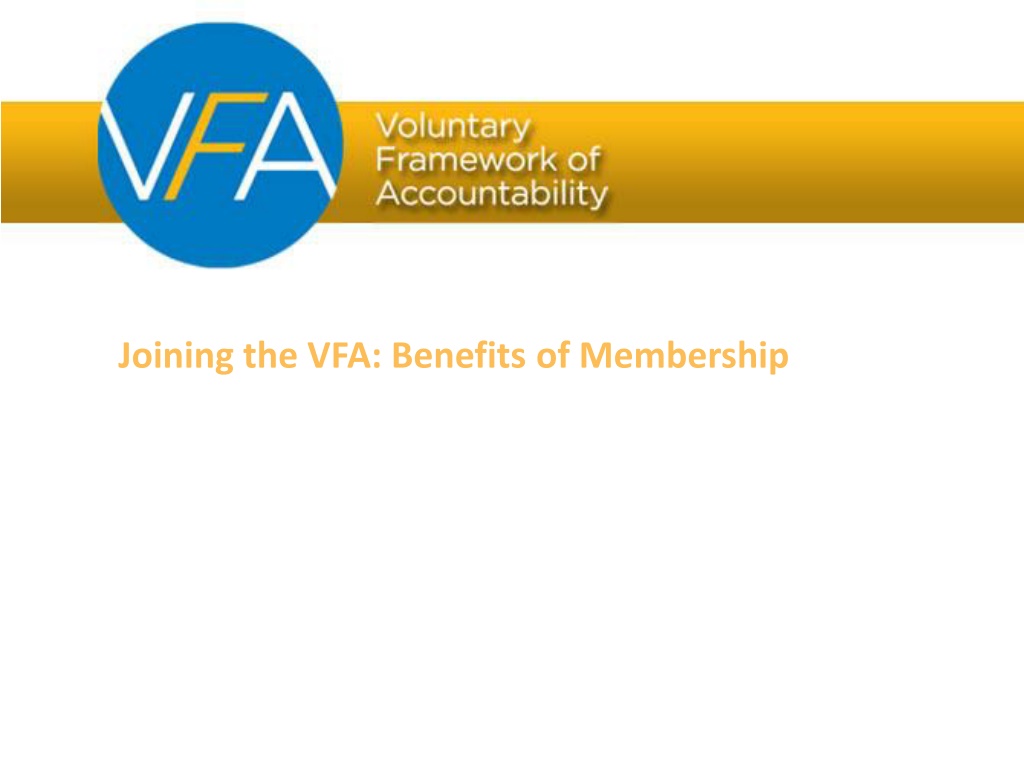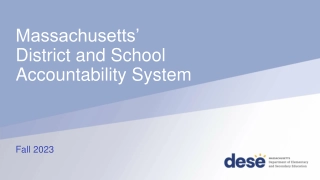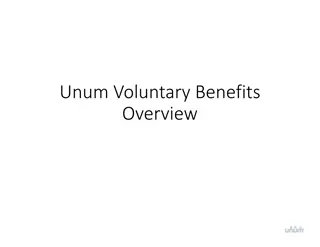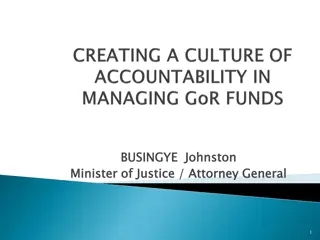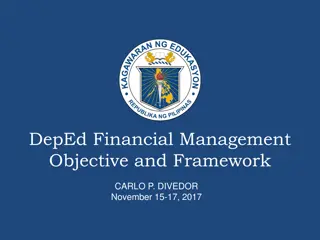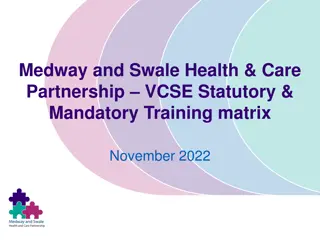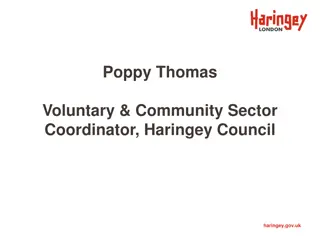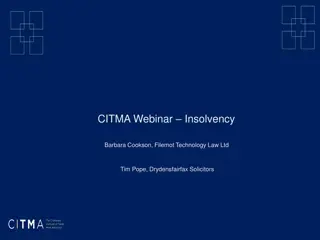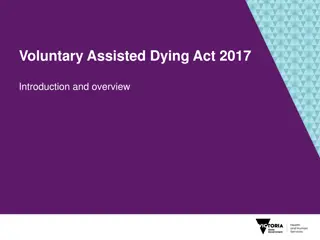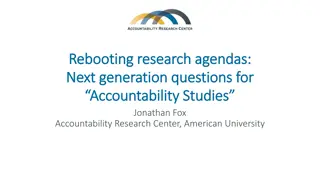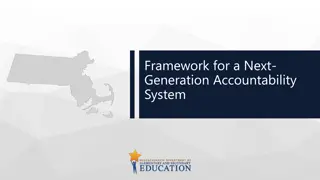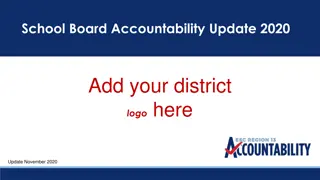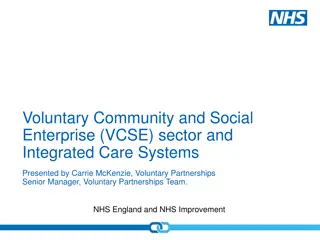Understanding the Voluntary Framework of Accountability (VFA)
Explore the benefits of joining the VFA, the importance of accountability in various levels, the objectives of the VFA, and how it enhances reporting and decision-making in community colleges. Dive into the VFA dashboard showcasing developmental education progress and six-year outcomes, emphasizing the power of sector-wide engagement and burden reduction. Learn about the Student Right to Know regarding graduation and transfer rates in comparison to VFA rates.
Download Presentation

Please find below an Image/Link to download the presentation.
The content on the website is provided AS IS for your information and personal use only. It may not be sold, licensed, or shared on other websites without obtaining consent from the author. Download presentation by click this link. If you encounter any issues during the download, it is possible that the publisher has removed the file from their server.
E N D
Presentation Transcript
Accountability Overview Then Accountability is not new But focus on accountability has increased Many levels of accountability Federal, State, Institutional, etc. Now Need to have the appropriate measures
VFA Overview Need The Voluntary Framework of Accountability is the first national system of accountability SPECIFICALLY for community colleges by community colleges. Action
Reporting VFA Six Year Cohort Developmental Education Progress Measures Cohorts Two Year Cohort Main Two-Year Progress Measures Credential Seeking Six-Year Outcomes Measures First Time In College Measures Career & Technical Education Measures CTE Cohort Adult Basic Education Measures ABE Cohort
Objectives for the VFA Value-added metrics for accountability (using data to measure performance and make better decisions) Meaningful National benchmarking for good practices Opportunity to streamline reporting / relieve IR capacity Ability to tell a better, more robust story Better data to inform public policy and advocacy Utility
VFA Dashboard: SPO, Developmental Education Progress Measures
Engagement Alignment The Voluntary Framework of Accountability is an institutional framework; HOWEVER The power is in sector-wide and national implementation Burden Reduction
Student Right to Know Graduation/Transfer Rates Compared to VFA Rates: 2007 Cohort 80% 70% 60% 50% 40% 30% 20% 10% 0% State 1 College A College B College C SRK FTFT Completed/transferred VFA Main - Completed/transferred VFA Credential Seeking - Completed/transferred VFA FTIC - Completed/transferred
Use-case Examples Community Colleges in Michigan and the MCCA On-campus uses and benefits Meaningful State-wide uses and benefits Utility
Use-case Examples OCCC Incorporating VFA into all responses for accountability Benchmarking parameters Setting developmental education goals
Use-case Examples (cont.) Accreditation Disaggregation Meaningful Oxnard Math Labs Non-credit and ABE Committees (Iowa) Policy: PIRS and HEA Utility
VFA Webinars http://vfa.aacc.nche.edu/webinars/Pages/default.aspx
Voluntary Framework of Accountability We welcome Questions & Feedback Contact VFA at VFA@aacc.nche.edu Y2 , Y3, Y4 Website: http://VFA.AACC.NCHE.EDU principle accountability system
